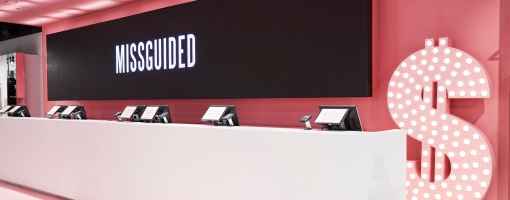Apple is set to officially enter the Buy Now, Pay Later (BNPL) space.
The new product, dubbed Apple Pay Later, will allow users to pay for goods in four instalments over a six-week period, interest free. The move will pit the tech giant against major FinTechs including Klarna and ClearPay in the fast-growing alternative payments space.
Apple Pay Later, which will be rolled out initially in the US, will be fully integrated with Apple Pay, will be packaged with iOS 16, and will operate via Mastercard’s network, the company said.
The announcement came at Apple’s developer conference WWDC, which also revealed plans for a new iPhone lock screen.
Rumours of Apple's entrance into the crowded BNPL space have been circulating since July 2021, when Goldman Sachs was reportedly tapped up as a potential credit partner.
Apple did not mention whether the new product, which is currently only available for US users, will be rolled out more widely.
The move comes after Apple acquired UK-based credit reporting FinTech Credit Kudos earlier this year.
The wider BNPL industry is currently undergoing significant changes.
Klarna last month announced it is cutting its workforce by 10 per cent in response to a “volatile economic environment”.
The Swedish firm, which currently has 7,000 staff, announced it will lay off 700 staff in a pre-recorded video message.
“The overall impact of Apple’s announcement should be limited in the short term, as relatively speaking, the market share of Apple pay transactions is low,” said Scott Harkey, executive vice president, financial services and payments at Endava. “For now, we don’t see this driving meaningful volume away from established BNPL players.”
He added: “Apple has a fantastic record of launching products that start simple but scale to be more complex over time, so banks and BNPL providers should keep an eye on these developments, as Apple’s brand power will eventually put some pressure on the leading players”.
Latest News
-
Asos upskills 100 designers in genAI
-
Game closes final standalone stores as administration marks end of High Street era
-
Co-op ordered to revise price match adverts after watchdog finds misleading comparisons
-
Coty partners with OpenAI to implement AI tools
-
Aldi invests over £22m in latest round of price cuts
-
Ocado CFO to join Kingfisher board
Beyond Channels: Redefining retail with Unified Commerce
This Retail Systems fireside chat with Nikki Baird, Vice President, Strategy & Product at Aptos will explore how unified commerce strategies enable retailers to tear down these barriers and unlock new levels of operational agility and customer satisfaction.
The future of self-checkout: Building a system that works for consumers and retailers
In this webinar, industry leaders discussed what the future of self-checkout looks like and how retailers can make the technology work for everyone.
© 2024 Perspective Publishing Privacy & Cookies










Recent Stories